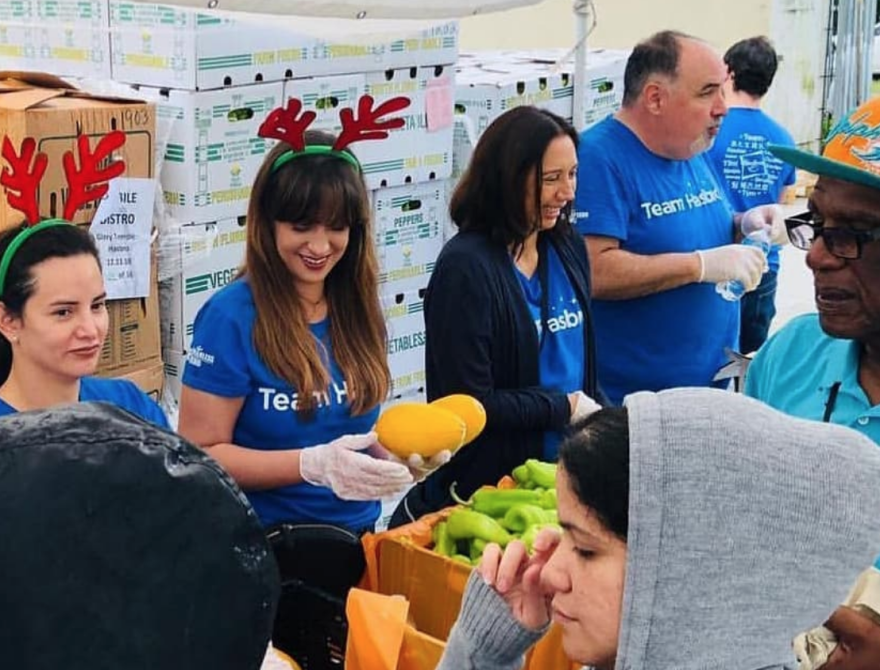This holiday season, thousands of families in South Florida will go hungry.
According to the non-profit Feeding South Florida, more than 700,000 individuals are currently food insecure across the region. Despite South Florida's large agricultural industry, many low-income families live in places without access to fresh produce, known as food deserts. Paco Velez is the President and CEO of Feeding South Florida and he joined Sundial to explain the area's greatest needs.
This conversation has been edited lightly for clarity.
WLRN: How are you reaching people [who are food insecure]?
VELEZ: We have the great privilege of working with about 305 different non-profit organizations in the four county area. They are embedded in the community. We work with churches, Salvation Army's and Camillus House -- that are really trusted in the community. Families come to those organizations and we provide the food to make sure that they have enough to be able to serve the families in the area. They provide us with reports and we're able to look at those reports and really get a better understanding of the need.
Where do you see the greatest need and who are they?
It's interesting that you say that because you can't really see. The faces are just like everybody else's and when we bring in the Youth Ambassador Program and parents come in with their ... elementary school children so they can learn more about hunger and want to take it back to their schools, it is then when parents realize that their children [are] asking for extra food at lunch so they can help one of their friends at school. And their parents are proud but also shocked that it's an issue because they don't really see it. It's the same thing anywhere we go. Miami is such a very diverse place that in these neighborhoods you'll see a lot of wealth and in those same neighborhoods you'll see extreme poverty, side by side.
One of the challenges that you have is the stigma around people in need, whether it's students who have to have the free or reduced lunch, people [who] have to go to a pantry to get help. It's that stigma and people feel shame. How do you fight that?
So we're seeing families at some of their worst times in their lives having to realize or come to the realization that they cannot put food on the table, keep the lights on, keep the car going all at the same time and coming in and really having to just say 'I need help.' It's not really easy for anybody to do especially for families who are struggling with a basic need, which is food.
We do a lot of publicity and a lot of interviews. We talk to a lot of volunteers and we talk to anyone we can about the needs in the community and try to dispel those myths about the needs in the community. The majority of the individuals we serve are working families or seniors that have already worked and are on either Social Security or disability or both. And so it's trying to dispel some of those myths.
Copyright 2020 WLRN 91.3 FM. To see more, visit WLRN 91.3 FM. 9(MDAyNDY5ODMwMDEyMjg3NjMzMTE1ZjE2MA001))



